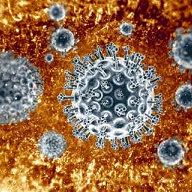Drug Abuse No Barrier to Effective Hepatitis C Treatment, Study Finds
People who were using illicit drugs and sought treatment for Hepatitis C infection did just as well on direct-acting antivirals as non-drug users, Bronx, NY researchers report.

Drug users treated for hepatitis C virus (HCV) infection with direct-acting antivirals had a 96% cure rate, a team of Bronx, NY researchers found--slightly better than the rate for non-drug-users..
Reporting Feb. 24 in a poster presented at the Conference on Retroviruses and Opportunistic Infections meeting in Boston, MA, Briana Norton, DO, an infectious disease specialist at the Montefiore Health System and colleagues said they set out to see whether high cure rates in this group could be achieved in a clinical outpatient setting.
The team investigated the effectiveness of onsite treatment with care coordination for patients who access primary care at a federally qualified health center (FQHC) in the Bronx.
The subjects got onsite HCV treatment once weekly by an HCV specialist.. An HCV care coordinator, whose position was funded by the New York City “Check Hep C” program, was responsible for patient scheduling, reminder calls, health education, and obtaining prior authorizations.
In all, 121 patients were evaluated for HCV from January 2014- February 2015 within the system’s primary-care based program, and 89 patients (74%) initiated HCV treatment.
Patients treated were mostly male (63%), Latino or African American (84%), with a median age of 59.
Overall, 23% were HCV treatment experienced, 24% were HIV/HCV co-infected, and 35% had cirrhosis.
Over half of the patients were drug users (52%).
There were 36 patients on opioid substitution therapy and 30 patients were actively using drugs during HCV care.
The majority of the patients were HCV genotype 1 (94%) and all were treated with sofosbuvir-based regimens.
The overall HCV cure rate was 96% (85/89), and there were no differences in cure rates for PWUD (96%, 44/46) versus non-PWUD (95%, 41/43, p=0.95).
The researchers said the importance of their finding is that when people who use drugs get suboptimal treatment for HCV, their infection “contributes to growing HCV-related morbidity and mortality, and maintains a continued reservoir for HCV infection.”
They recommend that similar treatment models be replicated and tested throughout the 1,200 FQHCs in the US, settings that are known to serve high numbers of drug users.